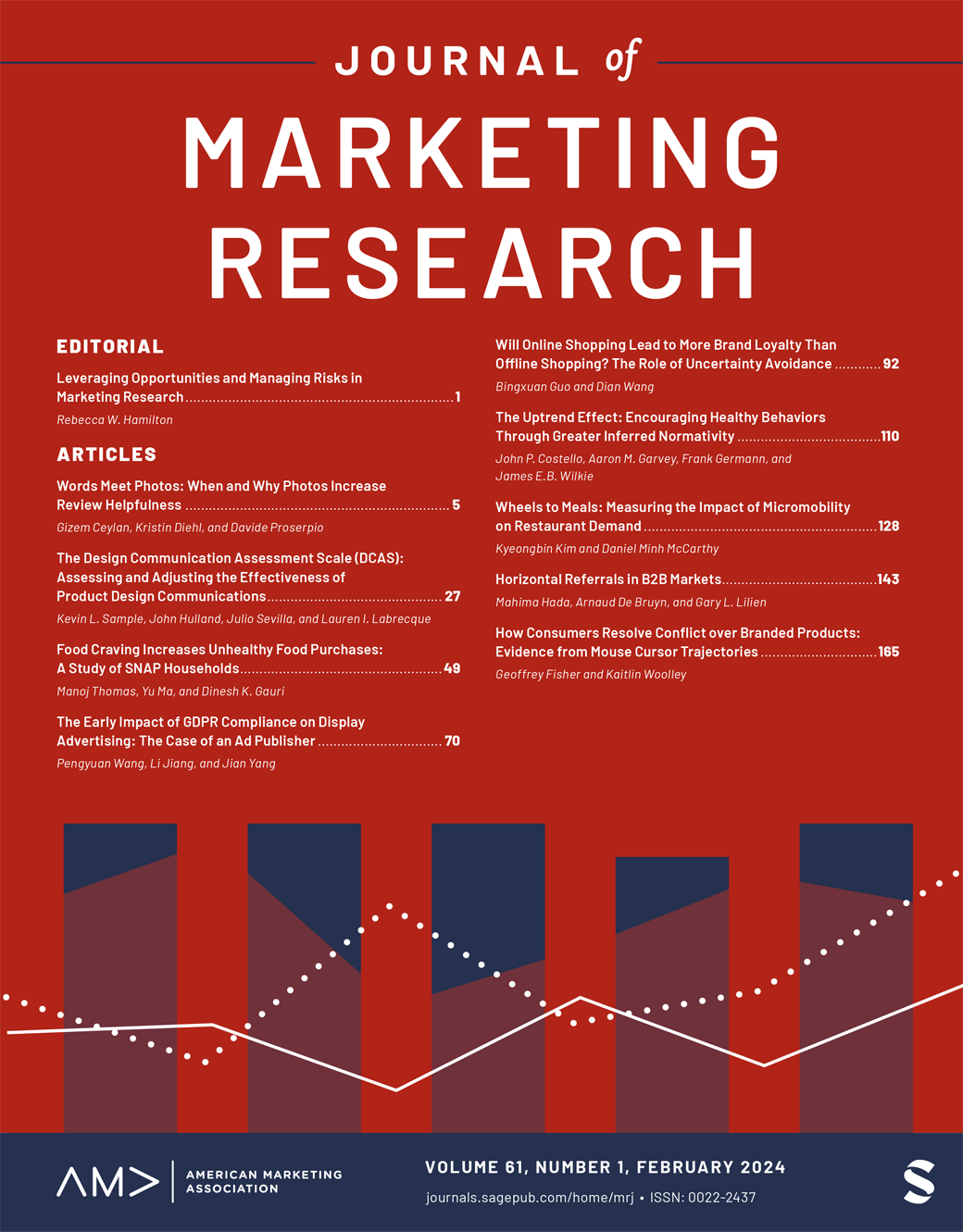EXPRESS:非处方药消费:消费者如何偏离标签说明
IF 5
1区 管理学
Q1 BUSINESS
引用次数: 0
摘要
产品消费是市场营销中一个重要但研究不足的方面。非处方药呈现出独特的消费环境,因为消费者需要遵守产品标签说明。对于广泛使用的非处方药对乙酰氨基酚,我们研究了消费者倾向于标记哪些偏离,为什么,以及最有希望缓解这种偏离的干预措施。我们开发了一个消费的动态结构模型,使我们能够调查不同类型的标签偏差(例如,每天>4g)的概率以及此类行为的驱动因素。标签偏差是罕见的“尾部区域”行为,该模型很好地揭示了它们。我们的分析基于一份独特的在线消费日记,消费者从两类对乙酰氨基酚产品(单一成分或组合)中进行选择,以治疗他们的疼痛或非疼痛相关症状。当消费者出现多种症状时,服用>4g对乙酰氨基酚的概率更高,各种可观察的因素解释了个人标签偏离的倾向。我们提出了两种干预措施——新的标签指导和消费者教育——以减轻观察到的标签偏差,并评估每种偏差的预期影响。本文章由计算机程序翻译,如有差异,请以英文原文为准。
EXPRESS: Over-the-Counter Drug Consumption: How Consumers Deviate from Label Instructions
Product consumption is an important yet understudied aspect of marketing. Over-the-counter (OTC) medicines present a unique consumption context because consumers are expected to follow product label instructions. For acetaminophen, a widely consumed OTC drug, we study which consumers tend to label deviate, why, and the interventions that are most promising to mitigate such deviations. We develop a dynamic structural model of consumption which allows us to investigate the probability of different types of label deviations (e.g., >4g per day) and drivers of such behaviors. Label deviations are infrequent “tail area” behaviors, and the model uncovers them well. Our analysis is based on a unique online consumption diary in which consumers select from two classes of acetaminophen products (single ingredient or combo) to treat their pain or non-pain related symptoms. Consumers have a higher probability of taking>4g of acetaminophen when they have multiple symptoms, and a variety of observable factors explain the individual propensity to label-deviate. We propose two interventions—a new label instruction and consumer education—to mitigate the observed label deviations and assess the expected impact of each.
求助全文
通过发布文献求助,成功后即可免费获取论文全文。
去求助
来源期刊

Journal of Marketing Research
BUSINESS-
CiteScore
10.30
自引率
6.60%
发文量
79
期刊介绍:
JMR is written for those academics and practitioners of marketing research who need to be in the forefront of the profession and in possession of the industry"s cutting-edge information. JMR publishes articles representing the entire spectrum of research in marketing. The editorial content is peer-reviewed by an expert panel of leading academics. Articles address the concepts, methods, and applications of marketing research that present new techniques for solving marketing problems; contribute to marketing knowledge based on the use of experimental, descriptive, or analytical techniques; and review and comment on the developments and concepts in related fields that have a bearing on the research industry and its practices.
 求助内容:
求助内容: 应助结果提醒方式:
应助结果提醒方式:


